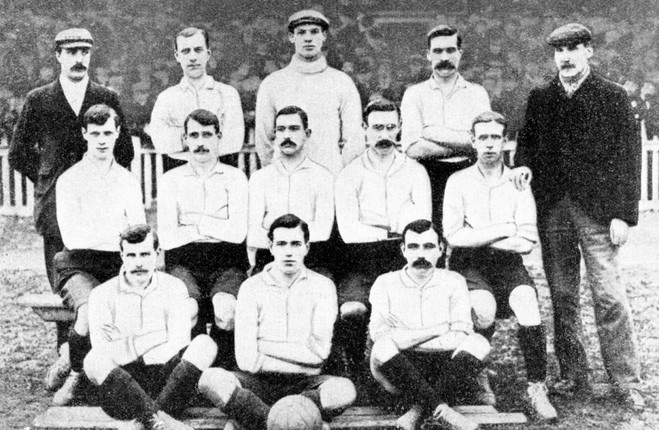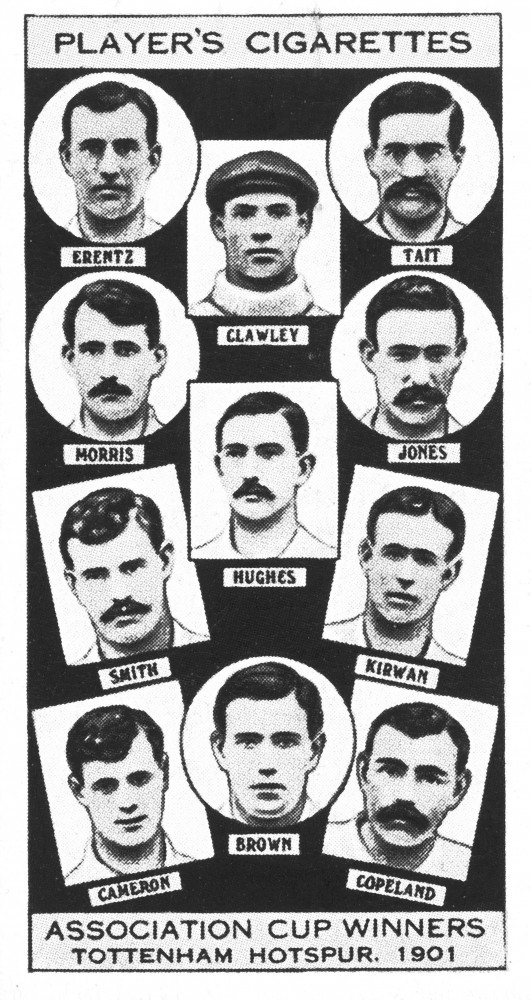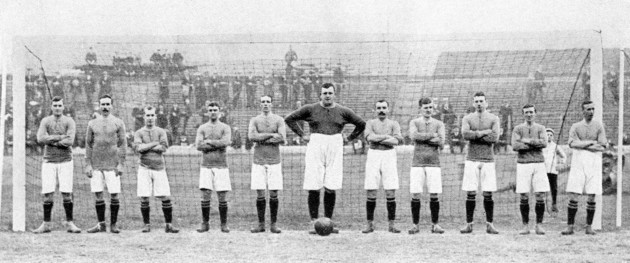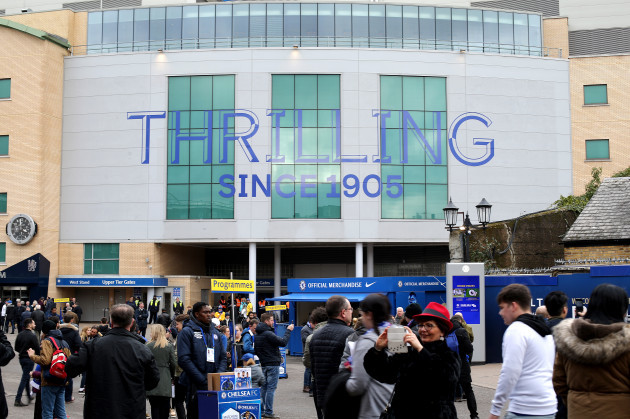JOHN ‘JACK’ KIRWAN won the 1894 All-Ireland Senior Football Championship with Dublin.
In 1910 he became the first recognised head coach of Ajax after posing as an Englishman.
In between, the Wicklow-born winger was a central protagonist in the birth of a rivalry between two London giants which, more than a century on, has lost none of its intensity.
Chelsea host Tottenham Hotspur today and Stamford Bridge will be heaving.
The curtain is raised on a new season for the residents of the King’s Road – the first full campaign of the post-Roman Abramovich era, one which officially began in May when the consortium led by American billionaire Todd Bohely finalised its £4.25billion takeover.
The figures are a far cry from when Chelsea was established in the Rising Sun pub – the meeting taking place in an upstairs room that was generally used to stage death inquests.
In attendance, according to the club’s official history, were the following: “Rather than the factory moguls and sons of toil who typically steered northern and midland clubs, the driving forces at the heart of Chelsea were the well-to-do and the well-meaning.
“There were entrepreneurs, fun-loving publicans, an athletics club secretary, and a whip-maker to the gentry on the board, and men of influence and social conscience on the panel of Presidents and Vice-Presidents.”
The site that would become their home at Stamford Bridge was just yards away.
New money rolled in and this new team needed accomplished stars to fulfil the ambition of adventurous owners – Kirwan became a prime target, and with good reason.
Three years after he won the All-Ireland, the English Football League was established.
A decade later and the 5ft 7in winger, described at the time as “a waif of a player”, began to pull up trees in the Lancashire League with Southport Central.
Then came the first much-publicised transfer of a colourful career.
Blackburn Rovers and Everton flexed their respective financial muscle in an attempt to prise Kirwan away. The Toffees succeeded, a fee of £250 making him the first Irishman to call Goodison Park home.
His skill, balance and direct nature soon brought him to the attention of the emerging forces in the English capital.
Ahead of the 1899/1900 season, Tottenham Hotspur brought Kirwan to White Hart Lane.
The move also led to him returning to Ireland, picking up the first of his 17 caps as he wrote his name in the north London club’s history books as their first Ireland international.
With Kirwan on the wing and the prolific David Copeland leading the attack, Spurs were promoted from the Southern League Championship at the first time of asking.
He quickly became a fans’ favourite, his diminutive stature belying the kind of bravery required to thrive.
“An out-and-out winger, he (Kirwan) did not appear to have the physique to overcome the often-robust challenges of the defenders of the day,” is the start of Kirwan’s description in a profile in The Spurs Alphabet: A Complete Who’s Who of Tottenham Hotspur FC.
But in fact he had such an abundance of skill that defenders were rarely able to get close enough to tackle him.”
Across six seasons Kirwan scored 90 goals in 343 games, and it was a spell which brought further famous success.
Tottenham, who had not yet been granted entry to the English Football League, became the first non-league club to win the FA Cup when, in 1901, they beat Sheffield United 3-1 in a replay at Bolton’s Burnden Park, having drawn 2-2 the week before in front of a then world-record crowd of 110,820 at Crystal Palace.
Kirwan’s £24 win bonus was small change compared to the money that was soon swashing around west London.
Chelsea became the most expensive pub team ever assembled, suggesting that the early glut of Abramovich’s splurging was simply continuing a storied tradition.
Both Kirwan and Copeland were poached from Spurs, yet politics still hampered the club’s early progress.
As a result of the threat to the natural order, Chelsea’s application to join the Southern League was ardently opposed by, you guessed it, Tottenham.
Instead, the Blues found a path to Division Two of the Football League and, as described by The Spurs Alphabet, Kirwan’s decision to severe ties in north London caused “surprise and disappointment.”
It brought another landmark to his career, as Everton and Spurs’ first Ireland international added being a part of Chelsea’s debut starting XI for a Football League fixture.
A 1-0 defeat to Stockport on 2 September 1905 was not the start they had hoped for and, in truth, Kirwan’s most effective days were behind him.
While he managed to score in what remains a club record 9-2 win over Glossop North End in 1906, the 27-year-old was on the wane.
Within five years, after bouncing around the lower leagues, a major change presented itself when the board of Ajax came to Britain seeking a head coach.
Kirwan played the role of “British gentleman” to secure the position and it paid off, leading them to promotion to the Dutch top flight. Three years later, though, they suffered relegation and, following the outbreak of World War I, Kirwan returned to Britain with his wife, Edith, and their two daughters, Eileen and Maureen.
There were further travails in management in Italy, even returning to work with Bohemians, before he passed away at his home in Middlesex.
Yet before he did he wrote to the official Ajax club magazine in 1953 thanking them for some of the financial aid they sent towards the end of his life.
I will always remember the kindness and treatment I received from the club and supporters. I will remember the night we returned to Amsterdam the night we became first class (earned promotion). What a grand reception the team had.
“Well, I have had all the football honours a footballer could have but never had a better reception than that night. Something that has brought me great joy is the excellent game of Ajax.
“We hope the chant ‘Hup Ajax’ may long blare over the fields of our First Classers.”
There is no doubt about his Ajax connection, but his relationship with Chelsea and Tottenham was a little bit more complicated.





